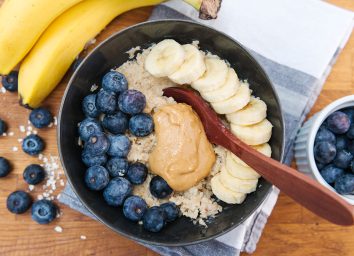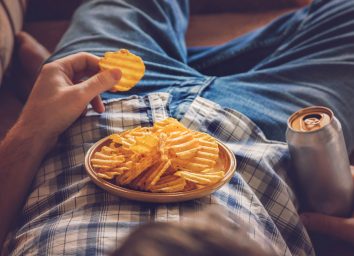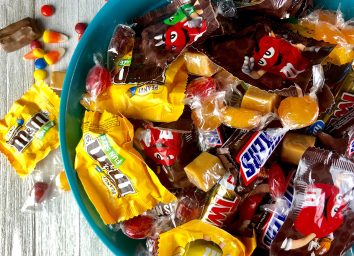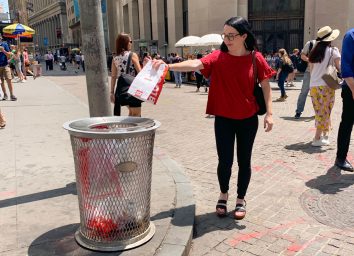Why Are You So Hungry the Day After Eating a Lot of Food?
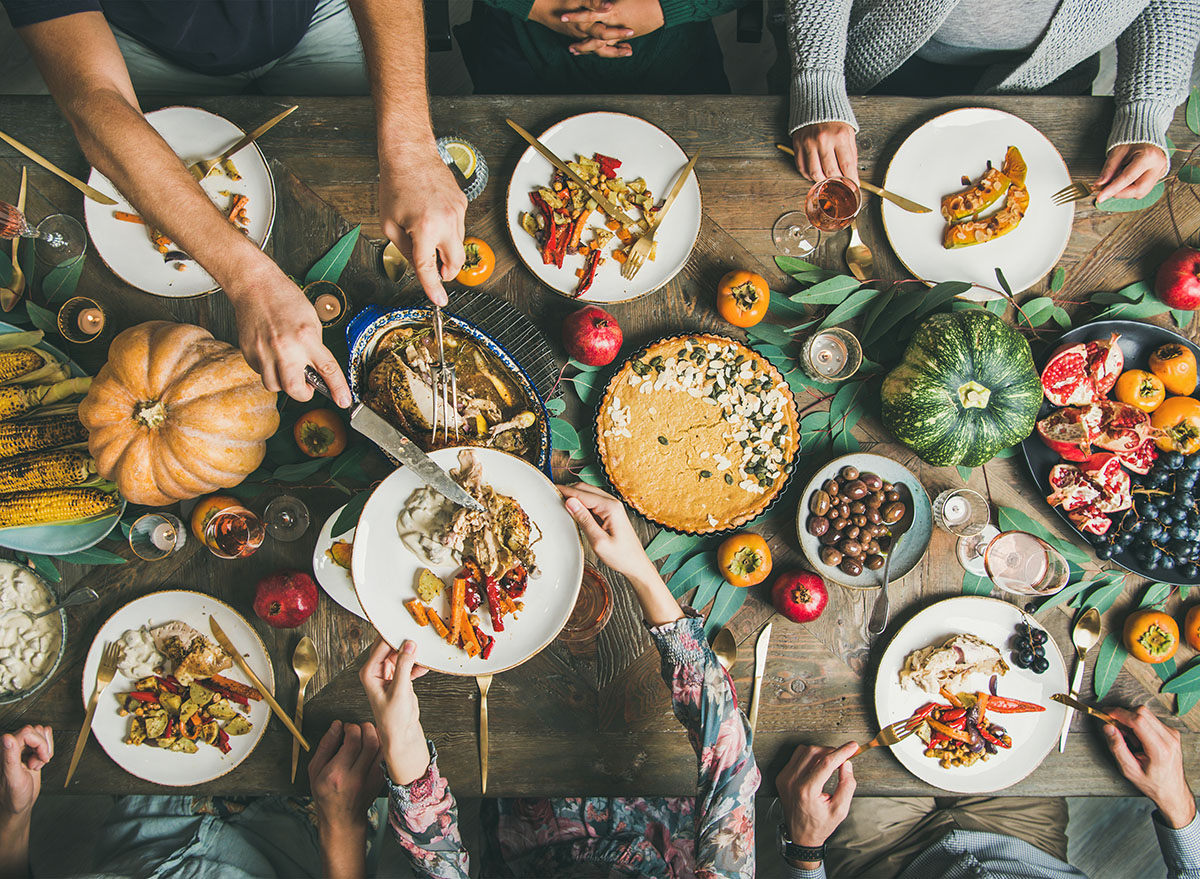
We’ve all been there—after a massive meal, the words “I’m never eating again” have likely slipped out. But the day after, you wake up hungry. Did you not just fuel yourself with enough food to last for days?! Yes, but our bodies don’t necessarily handle large amounts of food that way. Especially with the holidays (when feasting is the norm), it can be hard not to overeat. So what gives?
We asked a nutritionist and an endocrinologist about what overeating does to the body, and how to avoid it.
What does overeating do to our bodies?
Basically, it’s not just your stomach that’s impacted by a big meal.
“Research studies have examined the effects of short-term bouts of overeating on subsequent food intake, hunger, weight, and metabolism in the days following. These studies suggest that it may take 2-4 days for us to return to baseline, and that many people don’t ever fully compensate for the excess calories, even after short bouts of overeating (such as may occur over a holiday weekend),” says Lisa Neff, MD, an endocrinologist at Northwestern Medicine. “Over time, this may contribute to weight gain and increase the risk for weight-related medical issues, such as high cholesterol, high blood pressure, and diabetes.”
Besides the long-term effects, your body will also be feeling it.
“Eating too much food requires your organs to work harder. They release extra hormones and enzymes to break down the food in your stomach and intestines. Your body is exhausted,” says Jerlyn Jones, MS, MPA, RDN, spokesperson for the Academy of Nutrition and Dietetics. “Overeating causes the stomach to expand beyond its normal size to accommodate larger amounts of food. A full stomach pushes against other organs, making you feel uncomfortable. This can make you feel tired, sluggish, and drowsy.”
Why does overeating make you feel hungry—even after eating a lot of food?
Unfortunately, the answer isn’t totally clear.
“It isn’t clear why people struggle to eat less after a day or two of overindulging,” says Jones. “Some, but not all studies, suggest that hormones that influence hunger and fullness (ghrelin, insulin, cortisol, GLP-1, PYY) may play a role. Certain types of foods may increase subsequent hunger or cravings more than other foods.”
How do you suggest people ‘recover’ from overeating?
The day after overeating can be pretty rough, but according to Jones, there are three tips that should help you feel better.
- Drink water. “Start with eight ounces, and slowly increase to stay hydrated,” says Jones.
- Get up and move. “A post-meal walk can aid in digestion and decrease your blood glucose levels,” says Jones.
- Whip up a nutritious and satisfying meal for the next time you eat. “Aim to include a lean protein such as salmon, turkey, or tofu, fiber-rich vegetables, and whole grains like quinoa, millet, or brown rice,” says Jones.
What can you do to avoid overeating?
Here are nine easy tips to prevent you from eating too much during the holidays.
- Take away any distractions that may cause you to overeat. “Watching a football game, sitting in front of your computer, or checking your email on your smartphone while you eat are distractions and may cause you to overeat,” says Jones. “Several studies found that being distracted during a meal led people to consume more food at that meal.”
- Don’t skip meals prior to the holiday dinner. “Have a healthy low-calorie breakfast featuring lean protein, a fruit or vegetable, and a small portion of whole grain,” says Dr. Neff.
- Prep healthy appetizers. “Prepare healthier options such as apples with nut butters, hummus and veggies, or plain Greek yogurt topped with berries and almonds,” says Jones.
- Don’t buy ‘trigger’ foods. “Be aware of foods and drinks you have a hard time resisting (baked goods, desserts, potato chips, soda, alcohol), and don’t have these foods in your home,” says Jones.
- Plan your serving sizes. “Plan out your holiday meal and ensure you have healthy options along with the indulgent choices,” says Dr. Neff. “Limit to 1 plate of food (1/2 as veggies, 1/4 as protein, and 1/4 as starchy vegetable or grain) and dessert to 1 serving.”
- Exercise. “Exercise has multiple benefits, including for mood, cardiovascular health, and weight maintenance,” says Dr. Neff. A 2016 study had participants eat 30 percent more calories than usual for a week, and had one group exercise 6 days a week, and the other not work out at all. It found that the group that exercised had protection of fat tissue from changes in inflammation levels and fat metabolism caused by a brief period of eating too many calories, while the group that didn’t exercise gained fat and also had increases in markers for heart disease and diabetes.
- Pay attention to your beverages. “Drink mostly water, unsweetened tea, and flavored sparkling water,” says Jones. “Stick to one alcoholic drink for women and two alcoholic drinks for men.”
- Practice intuitive eating. “Eat more slowly, take small bites, chew thoroughly, put your eating utensils down while chewing, listen to your body cues, and appreciating your food are all simple practices you can incorporate into your daily routine,” says Jones.
- Clear out your fridge. “To limit the damage of holiday eating, clear your house of tempting holiday foods immediately. Send guests home with leftovers, bring them to work, or freeze them,” says Jones.
